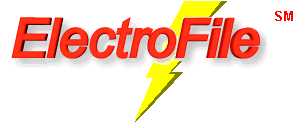
5200 W Market St
Greensboro, NC 27409
336-852-9505
 Terry Hough
Terry Hough
President

|
Income Tax Service
5200 W Market St Greensboro, NC 27409 336-852-9505 |
 Terry Hough
Terry Hough
President |
Qualifying coverage includes coverage provided by your employer, health insurance you purchase in the Health Insurance Marketplace, most government-sponsored coverage, and coverage you purchase directly from an insurance company. However, qualifying coverage does not include coverage that may provide limited benefits, such as coverage only for vision care or dental care, workersí compensation, or coverage that only covers a specific disease or condition. You may be exempt from the requirement to maintain qualified coverage if you:
For any month in 2014 that you or any of your dependents donít maintain coverage and donít qualify for an exemption, you will need to make an individual shared responsibility payment with your 2014 tax return filed in 2015.
However, if you went without coverage for less than three consecutive months during the year you may qualify for the short coverage gap exemption and will not have to make a payment for those months. If you have more than one short coverage gap during a year, the short coverage gap exemption only applies to the first. If you (or any of your dependents) do not maintain coverage and do not qualify for an exemption, you will need to make an individual shared responsibility payment with your return. In general, the payment amount is either a percentage of your income or a flat dollar amount, whichever is greater. You will owe 1/12th of the annual payment for each month you (or your dependents) do not have coverage and are not exempt. The annual payment amount for 2014 is the greater of:
For example, a single adult under age 65 with household income less than $19,650 (but more than $10,150) would pay the $95 flat rate. However, a single adult under age 65 with household income greater than $19,650 would pay an annual payment based on the 1 percent rate.